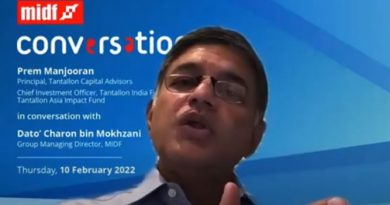Why identify businesses that can be a force for good?
Those who become leaders of organisations hardly lack ambition, however, it is clear that a new level of ambition is required. When INSEAD, a hot house of ambitious future business leaders, re-oriented its business school towards driving business education that focuses on developing responsible leaders, navigating unpredictable markets in turbulent times and generally exploring how business can be a force for good, it becomes abundently clear that business organisations must become active in overcoming the world’s most pressing challenges to be successful in the future.
Read the news on any day and it is clear that the legitimacy of major commercial companies is being questioned, and coming up short. Customers, employees, investors and suppliers are challenging companies to respond to changing societal values, concerns about climate change and finite natural resources. We are very stretched on all fronts. A growing sense of inequity is evident in the rising sense that capitalism in its current form is doing more harm than good. These lie at the heart of growing economic and political instability which are already firmaments in the calculus of most leadership teams and investors.
Successful businesses will be those that maximise their impact in meeting the needs they address, utilise minimal resources in doing so, and are nimble and responsive to all stakeholders. This is not new news. It’s hard today to find a CEO who does not believe sustainability and trust will be critical to competitiveness in the next five years. That conviction will be driven deeper with the confirmation in the markets over recent weeks that companies with high ESG ratings beat the S&P 500 ESG Index in the COVID-19 impacted first four months of 2020. Beyond the US, MSCI’s emerging markets ESG leaders index and its more Asia-focused AC Asia ESG leaders index outperformed their parent indices significantly too.
The COVID-19 pandemic has exposed fundamental weaknesses in our global system and underscored the need for a new type of leadership. It has certainly highlighted our societal inequities and made evident to all that those with less education, less money and fewer resources are being burdened with most of the suffering, risk of illness and need to sacrifice. What is clear is that business cannot thrive in a world of poverty, inequality, unrest and environmental stress and as such, has a vital interest in ensuring sustainable goals are delivered. Sadly, despite evidence that sustainable practices do differentiate winners from losers, and while the UN Sustainable Development Goals (SDGs) provide a robust framework for addressing many of these inequities, there is clear evidence we are unlikely to meet them.
Leadership is critical. Any organisation navigating these changeable times requires leadership teams to set the direction. Those who will be able to pull together and move forward well, will be those who already have a sense of a shared purpose. A study by Russell Reynolds of 55 sustainability pioneers in organisations underscored the importance of strong personal motivation and purpose. Combining a motivated sustainable mindset with a differentiated set of organisational capabilities rooted in a shared sense of purpose enables good leaders to drive transformation within and beyond their own organisations.
Business is not a commercial activity divorced from the wider societal and environmental context in which it operates. To be truly successful in the long term, there must be innovation and an ability to manage across commercial, societal and environmental outcomes. As Al Gore has put it before: “investors who do not recognise this new reality… are in serious danger of violating their fiduciary responsibility by leaving money on the table, by not taking into account factors that can actually improve performance of companies.”
Few need to be persuaded of the merits of businesses being a force of good. Commitment to sustainability is at an all-time high. However, there is a gap between rhetoric and practice. It is easier to recognise you should steer in a certain direction than to actually get there.
If personal motivation and a sense of purpose is critical, then it is clear the people in any organisation matter critically. Management teams with a track record of integrating sustainability into the business often have exposure to multiple cultures and a more well-rounded understanding of how business works. Those who can work out how to address these complex challenges in collaboration with other organisations and groups, those who go beyond an understanding of their own organisations to understand the interconnectivity of their ecosystem to others, those who can look ahead are best positioned to manage risk and spot growth opportunities over the long term.
For businesses to truly transform into forces of good, we need to change, and change is never easy to deliver. Corporate leaders need not only to see the new opportunities and risk, but also possess the courage to challenge comfortable familiar approaches and a willingness to ask why things cannot be done differently. Support from seeking out the best available knowledge to move beyond today’s best practice towards tomorrow’s required practice help teams get comfortable about not having all the answers and still steer into the unknown.
In managing through complexity, we cannot emphasise enough how important it is that companies plan for the long term. Setting goals into the distant future today may look audacious – and in navigating a volatile environment, there will be set backs along the way but organisations not planning for the longer term miss opportunities to drive innovation, develop human capital, expand into new markets, grow their customer base, create operational efficiencies and effectively manage social and environmental risks.
Most share the belief that it is common sense to assume that if you take from this world, you also need to match that by putting something back in. How we put it back may differ but the most important thing is, we do. Long term success will not be possible without this, so it is also critical that we seek and support those who do.

